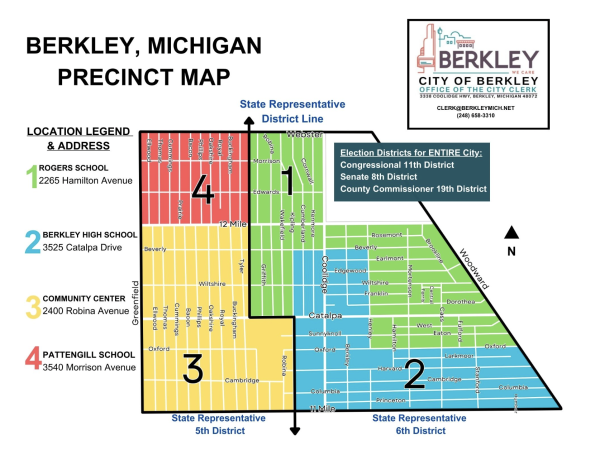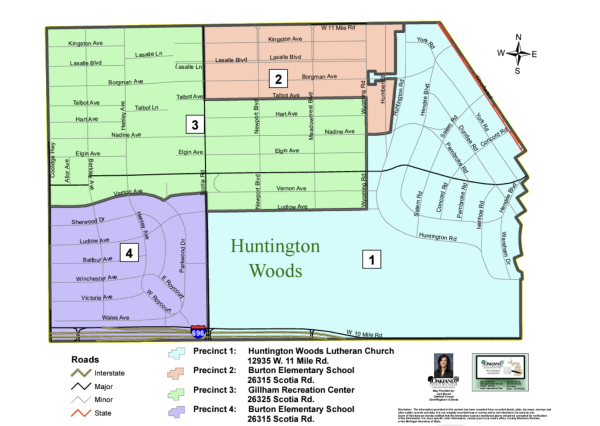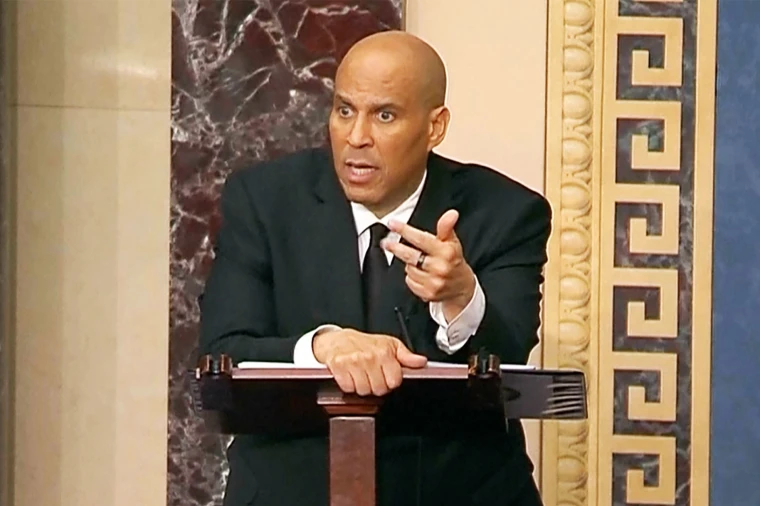In the 2020 election, just 2.8% separated Michigan’s electorals from going to the Democratic Party to the Republican Party. If you are reading this and are 18 years or older, your vote matters more, counts for more, and decides more because you live in Michigan. It matters more than a senior in Berkeley, California, or Houston, TX. It matters more because it literally has the power to decide the election because you, dear voter, live in a swing state. Your vote has the power to sway the state from one party to the other.
As election day inches closer, it has become apparent that a handful of key states will determine this election. These states are called “Swing States”. The simplest explanation of a swing state is a state that can be unpredictable on election day. Each state has a set number of electoral votes, and swing states tend to have a substantial number of those that determine elections, and each party covets them.
One of the biggest complaints about how elections work in the U.S. is the electoral college. According to the Pew Research Center, about 6 in 10 people in the US would prefer that the winner of the election is the candidate who receives the most votes. For the Electoral College, each state is given a certain number of electoral votes based on a census conducted every 10 years. The census analyzes a state’s population and assigns electors accordingly. An elector apart of the Electoral College is a person nominated to represent a given state and party, who then attends a conference with all the other states’ electors. These electors pledge prior to the convention who they will vote for, which is whoever won their state’s popular vote. However, this doesn’t always happen, some electors called faithless electors ultimately vote for a different candidate than whom they pledged they would. The punishment for these faithless electors is left up to the states, however, some states implement a fine and disqualify the vote, while others still choose to count it. The electors gather in mid-December, and the Electoral College will meet and vote for the candidate that won the general election. For example, in 2020, President Joe Biden received 306 electoral votes, while former President Trump received 232 electoral votes. Therefore, there were 306 people (electors) representing Biden from various states and 232 representing Trump at the conference. Heavily populated states, such as California, have a large number of electoral votes, standing at 54, while states with less population, such as North Dakota, which only has 3, have a small number of electoral votes. Since this is how the election system is set up, there have been times when one candidate has received the most overall votes, yet has lost the election. This has happened five times in the nation’s history. Most recently, in the 2000 election (Bush v. Gore) and in 2016 (H. Clinton v. Trump).
In the most recent census of 2020, Michigan lost one electoral vote, making its total 15 electoral votes. This could have a possible effect on the election since the candidate must receive at least 270 electoral votes to win, so even just one electoral vote can change the election. These electors are extremely coveted by both the Democratic and Republican parties, given that the state of Michigan had a big effect in the 2020 election. In the past 12 elections, Michigan’s electoral votes have gone to the Democratic Party at 58.3% and to the Republican Party at 41.7%.
On Tuesday, Nov. 5, the election will take place and will decide the fate of the U.S. for the next four years. This election, however, is especially important since the two candidates share such different beliefs. This is why it is so important to vote, especially for those who live in swing states. Your vote can have a drastic effect on this high-stakes election. The country is divided right now, as music artist Bruce Springsteen said in his endorsement speech, “Perhaps not since the Civil War has this great country felt as politically, spiritually, and emotionally divided as it does then at this moment.” Each side of the political spectrum has opposing views on important topics, such as reproductive freedoms, gun control, the economy, etc. This is leaving an unsettling feeling across America that there is a divide. According to CBS, over 77% of Americans, regardless of party, believe we are divided. Your vote can determine what America can look like for years to come.
A handful of states will determine this important election. These swing states include Pennsylvania, Georgia, Arizona, North Carolina, Wisconsin, Nevada and Michigan. The current closest margins are in Pennsylvania and North Carolina. All eyes are currently on Pennsylvania though. Along with Michigan in the 2020 election, Pennsylvania was a key component that helped President Joe Biden win the election by going Democratic. In the past 12 elections, Pennsylvania’s electors have gone to the Democratic Party 66.7% of the time. However, the margins between the Democratic and Republican parties have been no higher than 4% throughout these elections. Its unpredictability left many shocked when it went to Biden. It appears the state will be the same this election. Since the margins are so slim, both Harris and Trump are fighting for their possible election deciding 19 electoral votes. Another two states to keep an eye on are Florida and Texas. These states’ electors have historically gone to the Republican Party consistently, despite this, there has been talk of them going to the Democratic Party. There are a handful of factors that could cause these states to lean one way or the other. In the 2020 election, some of Flordia’s more rural counties were torn between Democratic or Republican, but ultimately the majority voted Republican. However, if some of these counties were to vote majority Democratic, this could give Flordia’s electors to Harris. This same thing could happen for Trump in Michigan.
Politicians from both parties are looking for something to push the scales in their favor, many believe non-voters will do this. Aside from the record-breaking turnout of the 2020 presidential election, America has experienced throughout the past few elections, there has been a decrease in voter turnout with it dropping to below 60% (US Election Project). This has sparked the Get Out the Vote campaign (GOTV). This small margin of people can have a massive impact on swing states, every vote matters. GOTV advertisements are not ones forcing the viewer to vote for a certain candidate, but to just simply vote. There are various reasons why people refrain from casting their vote, but one important one is that it’s too hard. Since official election days are on Tuesdays, it can be hard for those with children and jobs to find time to go to the polls, as most polls close around 6-8 pm. To help this problem, many states offer absentee ballots or vote-by-mail ballots. This allows citizens to vote up to weeks in advance, at their convenience. In Michigan, you can vote through absentee ballots, as long as you request it by Nov 1, and turn it in by election day. For those looking to vote simply in person, and missed the online registration deadline (10/21), you can still register to vote in person at your local election office on election day (additional information is located at berkleymich.org)! Along with it being somewhat difficult to vote, many Americans feel as if their voice does not matter. This has resulted in many celebrities advocating for everyone to vote. These voters can have a big effect on whether the states will go to the Democratic or Republican Party.
With this being such a high-stakes election, everyone is encouraged to make their voice heard, and make their vote count! Michigan residents can register to vote at Michigan.gov/Vote.
Want to know more about the candidates?
Visit: Ballotpedia, AP News, and ABC News for unbiased research!
BERKLEY RESIDENTS: Please find your district below. Visit berkleymich.org for more voting information!

HUNTINGTON WOODS RESIDENTS: Please find your district below. Visit ci.huntington-woods.mi.us for more voting information!










